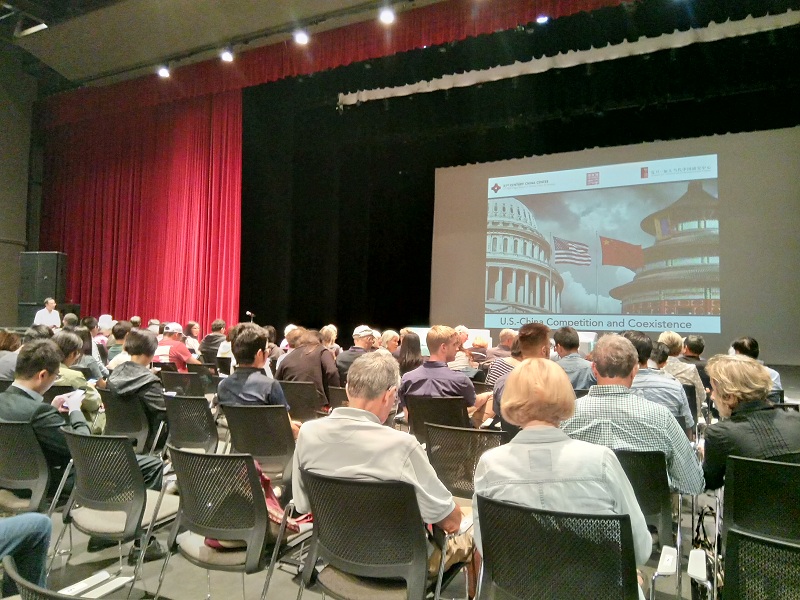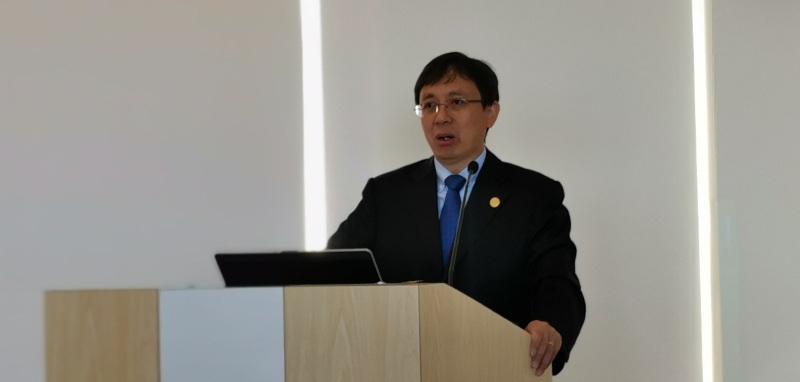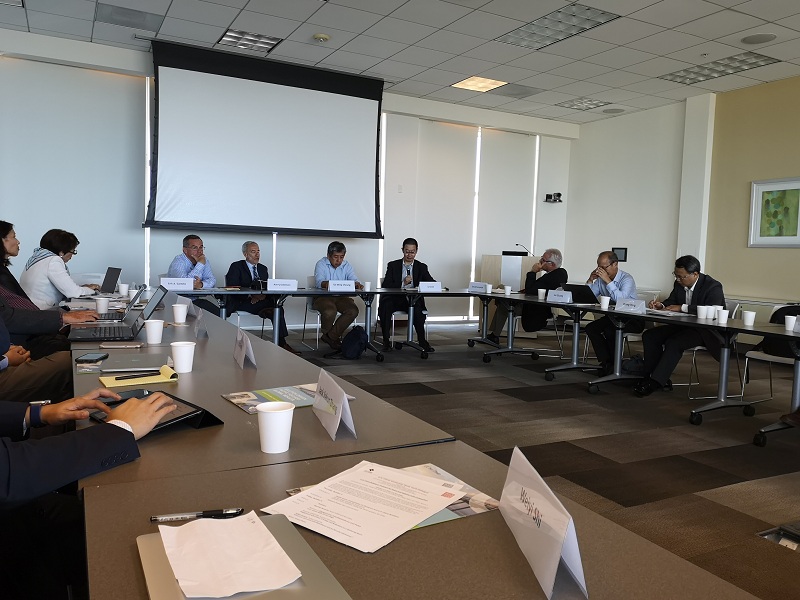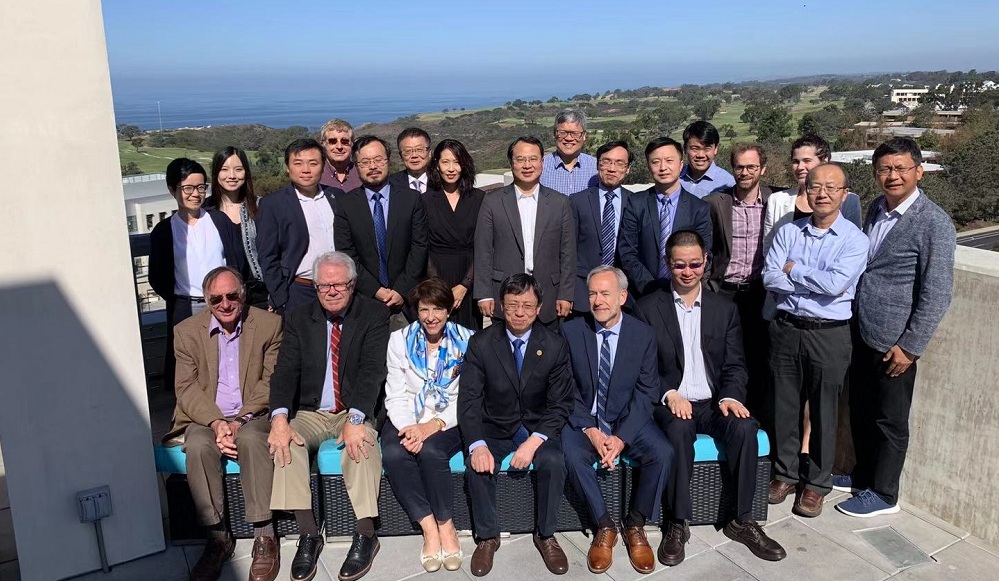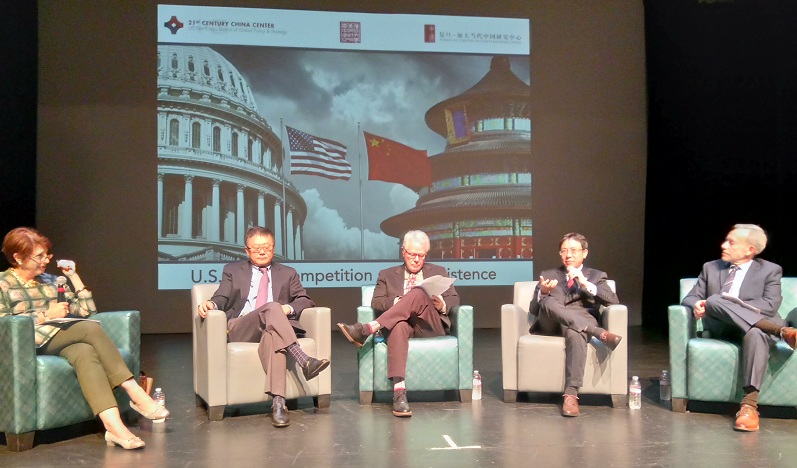
In the phase of October 3-5, 2019, co-organized by 21st Century China Center at UC San Diego School of Global Policy and Strategy and Center for American Studies, Fudan University, The 2nd U.S.-China University Think Tank Dialogue was convened in San Diego, California. Professor WU Xinbo, Director of the Center for American Studies and Dean of the Institute of International Studies at Fudan University, Professor XIN Qiang, Deputy Director of Center for American Studies and Professor SONG Guoyou, Deputy Director of Center for American Studies at Fudan University presented attendance at the event, themed with "U.S.-China Relations: Prospect for Peace and Stability with Competition", the vision of how to preserve a symbiotic relationship whereby any sincere endeavors towards one led to the other while also competing with each other. The multiyear dialogues brought together dozens of university-based and other policy experts from the U.S. and China, inclusive of Fudan University, Peking University, Renmin University of China, Nankai University, Beijing Language and Culture University in China and UC San Diego, Stanford University, UPenn, Georgetown University, University of Southern California, UC Institute for Global Conflict and Cooperation, The University of Kansas to engage in penetrating discussions concerning bilateral relations, with the aim of enhancing mutual comprehension and facilitating the improvement of ties between the two countries in the 21st century.
At the public event entitled "Competitive Co-Existence and U.S.-China Relations", chaired by Susan SHIRK, Research Professor, School of Global Policy & Strategy, UC San Diego on the afternoon of October 3, 2019, WU Xinbo, Professor and Director, Center for American Studies, Fudan University, HUANG Jing, Dean of Institute of International and Regional Studies, Beijing Language and Culture University, David M. LAMPTON, Oksenberg-Rohlen Fellow, Shorenstein APARC, Stanford University and Avery GOLDSTEIN, David M. Knott Professor of Global Politics and International Relations at UPenn, took up the panels and engaged interactively in sharing perspectives on issues of mutual concern. On October 4-5, the Chinese and American scholars and policy academics present at the conference sessions examined how historical examples of great-power rivalry such as how the Cold War could illuminate the U.S.-China dynamics of competition in the age of globalization and economic interdependence, in the historical context of the evolution of Sino-U.S. strategic engagement as well as global and regional order. Participants drew on their research to elaborate upon issues regarding both the lessons of the Cold War and the implications of economic integration for the U.S.-China relations, by virtue of which policy implications from such discussions would be drawn out. Attendants forged the consensus of affirming the instrumentally positive note to convene the U.S.-China University Think Tank Dialogue at the current downturn in Sino-U.S. relations.
